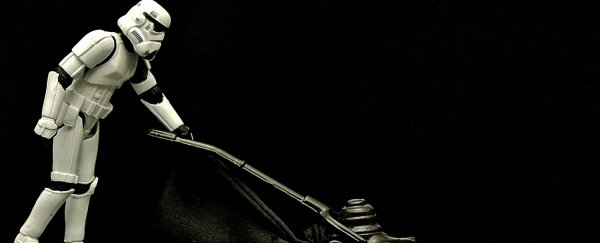Even the most logical minds can occasionally be sucked in by advertising, but physics students at the University of Technology Sydney (UTS:Science) in Australia have now teamed up with consumer advocacy group CHOICE to make sure that the knife or vacuum you're coveting really can cut cans, lift a bowling ball or shoot rainbows into the air, as promised.
As part of their Physical Modelling subject, first-year physics students are putting their theoretical knowledge into practice to test and compare a range of sample good provided by CHOICE, such as ceiling fans, LCD TVs, hair dryers and vacuums. CHOICE then provides this information to anyone looking for unbiased scientific reviews on products.
The aim of the new project is not only to make sure consumers aren't being ripped off by false claims, but also to help students get a sense of how the principles of physics can easily be applied to real-world industries and careers.
"Students very rarely get an authentic experience in working on something from a purely physics perspective," said lecturer and researcher Jurgen Schulte from UTS:Science, who's leading the collaboration, in a press release.
"I wanted to change it into something students would be doing in real careers – testing and designing – something they can relate to while actually learning the skill," he added. "Here they gain a multitude of experience which they can take to their other classes and into their future careers."
For the students involved, it's also a good opportunity to get some work experience and better grasp how physical theories affect the world around us. "It actually gives you a chance to put into practice what you are learning in the lecture theatre and it's good because it's a bit different," said Daniel Cullura, a civil construction student, in the release.
We're just exciting that someone is using real science to test out these items before we end up spending hundreds of dollars on them, and hopefully putting an end to some of advertisers' outlandish claims. Thank you, physics.
Love science? Find out more about studying at UTS:Science.
